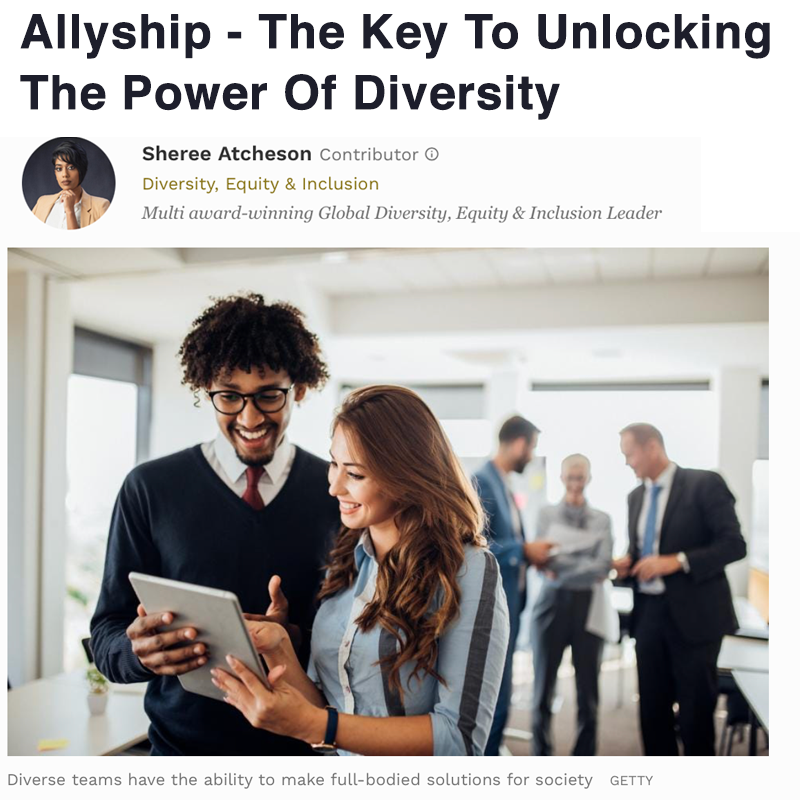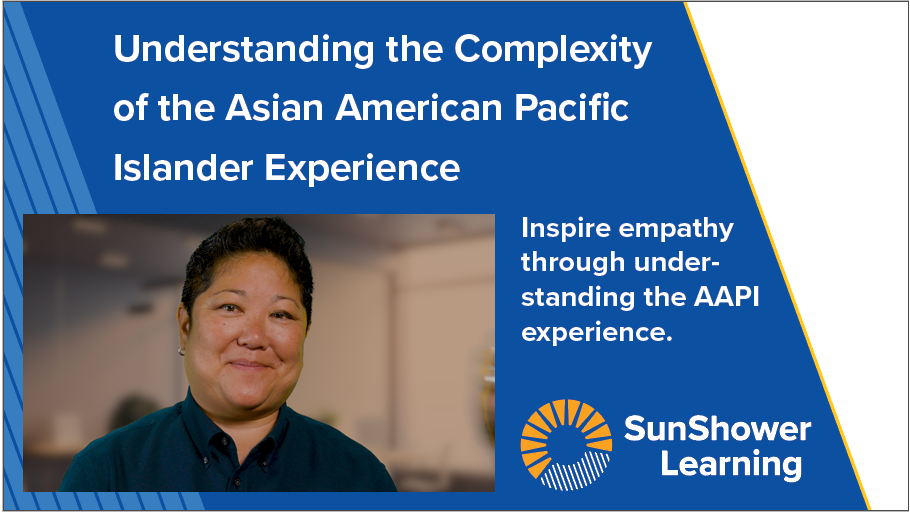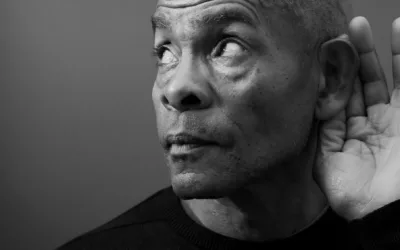
Allyship: Key to Inclusion?
“Remember to look for opportunities to be an upstander or ally.” You’ll often hear words like this at the end of a diversity workshop. In fact, I’ve emphasized the importance of being an ally in many of the courses I’ve produced.
Dr. Derald Wing Sue, in Disarming Microaggressions, talks about the importance of being an ally for those who’ve been targeted with microaggressions and he also emphasizes that if you have been targeted, you can seek out allies to gain more leverage to change the culture of your workplace. “Every time you speak up, express disagreement, or educate an offender, you are planting seeds that can change mindsets and behaviors in the future.”
Dr. Sue offers many strategies and tactics for speaking up against microaggressions. He says that it’s important to assess the moment and the situation and the first priority is to take care of yourself. You can go back afterwards, privately to have a conversation, or seek out a colleague who can speak up on your behalf and on behalf of respect in the workplace. This can be especially useful when there is a power differential between a person who’s been targeted and the person who says something offensive.
I came across the Forbes article, Allyship – The Key To Unlocking The Power Of Diversity. I appreciate how the author, Sheree Atcheson frames allyship as a process rather than a single act. This is important because sometimes when people talk about being an ally, it sounds like you just need to make one big public action and then you’re officially an ally. As Atcheson writes, it’s a lifelong process. Here are some key points from Atcheson’s article.
“Allyship is:
- a lifelong process of building relationships based on trust, consistency, and accountability with marginalized individuals and/or groups of people.
- not self-defined—work and efforts must be recognized by those you are seeking to ally with.
- an opportunity to grow and learn about ourselves, whilst building confidence in others.”
This reminds me of what Brian McNaught teaches in our Anyone Can Be An Ally course. He says, “We have to get our music in sync with our words. The workplace environment is created not by policies but by the attitudes and behaviors of managers and co-workers.” For Brian, an ally’s manner is their music. An ally speaks up with composure and confidence, clear and encouraging and they never blame or guilt trip. They also don’t back down.
Atcheson writes, “To be allies, words and action must be in sync. Words without actions are detrimental and work against changing the culture in technology. To be a true ally, you should:
- Lift others up by advocating,
- Share growth opportunities with others,
- Not view venting as a personal attack,
- Recognize systematic inequalities and realize impact of micro-aggressions,
- Believe underrepresented people’s experiences, and
- Most importantly – listen, support, self-reflect & change.”
She concludes that “a true ally must regularly listen to those around them adapt their thinking rework what they believe to be correct & become comfortable being uncomfortable.It can be a unique and challenging journey becoming and remaining an ally but certainly one worth taking.”
More From Our Blog…
Understanding Employee Responses to DEI Initiatives: Insights and Strategies
A recent study sheds light on a previously underexplored aspect of DEI training. While much focus has been placed on the facilitators, trainers and the content of DEI programs, this study examines how employees actually respond to the training. Published in Harvard...
SHRM’s Removal of “Equity” From DEI Framework: A Step Backwards Amid Growing Backlash
In a stunning step in the wrong direction, the Society for Human Resources Management (SHRM), the world’s largest HR association, has removed “Equity” from its “IE&D” framework. What message does this send, especially amid strong pushback against Diversity, Equity...
Navigating the Shifting Landscape of Diversity, Equity and Inclusion Programs
In the midst of the evolving landscape of corporate diversity initiatives, there's a seismic shift underway. The once-prominent acronym "DEI" - representing diversity, equity and inclusion - is notably absent from many company discussions. As explained in the article...
A Groundbreaking New Course: Understanding the Complexity of the Asian American Pacific Islander Experience
With over two decades of experience in the educational sector, Hideko Akashi, founder and lead consultant at Liberation Consulting, has been a steadfast advocate for diversity, privilege, social justice, inclusion and equity. Now, she's opening a new chapter with the...
The Deafening Silence of DEI Allies: A Call to Action in Troubled Times
As we commemorate the legacy of Rev. Dr. Martin Luther King Jr., his poignant words echo through the corridors of history, reminding us of the profound impact of silence in the face of injustice.” In the end, we will remember not the words of our enemies, but the...
DEI LEAP: Empowering Leaders Through Turbulent Times
DEI LEAP: Empowering Leaders Through Turbulent Times As we all know, 2024 has brought a wave of attacks against DEI. A handful of outspoken critics, such as Elon Musk, are misrepresenting DEI and attacking the strategies and practices that are creating more equitable...






